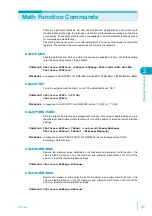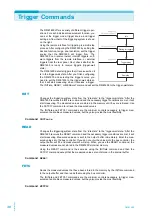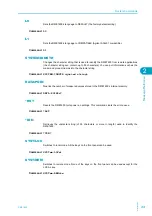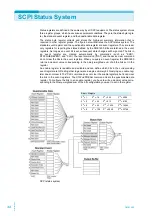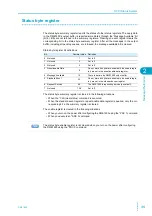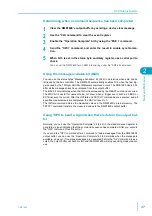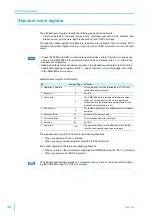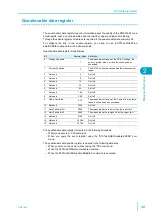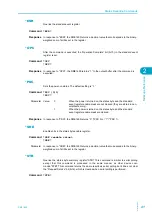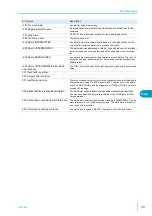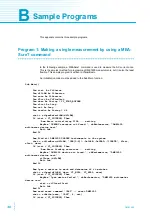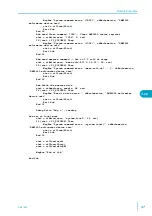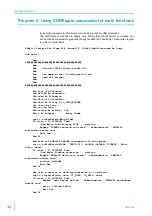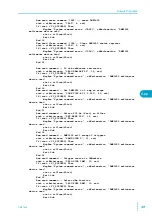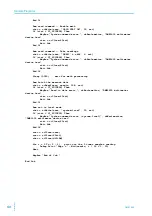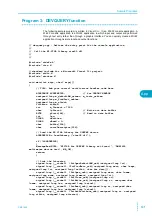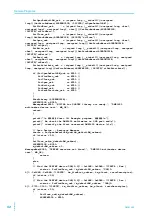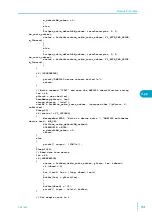
DME1600
41
Status Reporting Commands
Messa
ge Ref
e
re
nce
2
*ESR
Queries the standard event register.
Command
*ESR?
Response
In response to *ESR?, the DME1600 returns a decimal value that corresponds to the binary-
weighted sum of all bits set in the register.
*OPC
After the command is executed, the “Operation Complete” bit (bit 0) in the standard event
register is set.
Command
*OPC
*OPC?
Response
In response to *OPC?, the DME1600 returns “1” to the output buffer after the command is
executed.
*PSC
Sets the power-on status. The default setting is “1.”
Command
*PSC {0|1}
*PSC?
Parameter Value:
0
When the power is turned on, the status byte and the standard
event register enable mask are not cleared (they are stored in non-
volatile memory).
1
When the power is turned on, the status byte and the standard
event register enable mask are cleared.
Response
In response to *PSC?, the DME1600 returns “0” (*PSC 0) or “1” (*PSC 1).
*SRE
Enables bits in the status byte enable register.
Command
*SRE <enable value>
*SRE?
Parameter In response to *SRE?, the DME1600 returns a decimal value that corresponds to the binary-
weighted sum of all bits set in the register.
*STB
Queries the status byte summary register.*STB? This command is similar to serial polling
except that this command is processed in the same manner as other device com-
mands.*STB? This command returns the same results as serial polling but it does not clear
the “Request Service” bit (bit 6), which is cleared when serial polling is performed.
Command
*STB?
Summary of Contents for DME1600
Page 4: ...4 DME1600 This page left blank intentionally...
Page 5: ...Setup This chapter explains the settings that you need to configure to use the interfaces 1...
Page 9: ...Message Reference This chapter explains the SCPI com mands 2 Message Reference...
Page 43: ...Appendix A Error Messages B Sample Programs...
Page 55: ......

